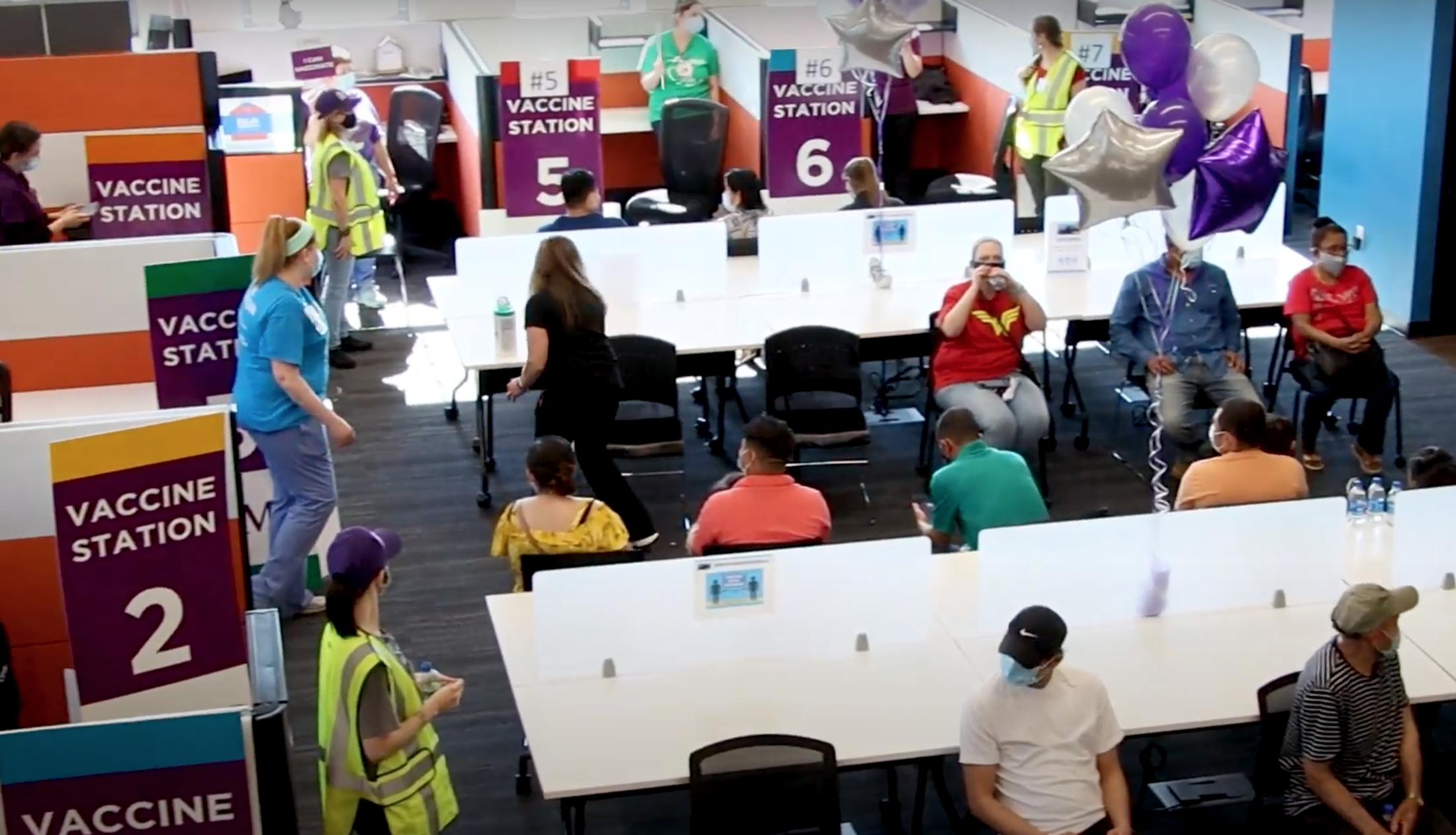PITTSBURGH, PA – In the halls of the Pittsburgh Hispanic Development Corporation, salsa music blares from speakers as people hand out popsicles from Alquisiras Paleteria and dozens of immigrants line up to receive a COVID-19 vaccine.
“We try to make it fun with music, with fun, with joy, and a little bit of Latino culture,” says Casa San Jose health clinic coordinator Claudia Sanchez, a recent immigrant from Colombia, who is helping coordinate the vaccine clinic in Pittsburgh’s predominantly Latino Beechview neighborhood.
Unlike the festive vibe of today’s vaccination clinic, the process of getting vaccinated has been anything but welcoming for many Latino immigrants.
“There is a lot of fear of getting the vaccine,” says Sanchez. “They [Latinos] are hesitating a lot because they didn’t have a way to inform themselves about the COVID and the vaccine because they didn’t have this information about the vaccine in their native language.”
Moreover, many undocumented workers have been afraid to get the vaccine because of ID requirements in some places, while others are hesitant because of a recently-rescinded Trump-era “public charge” rule, which charged immigrants with crimes for using publicly provided services, says Casa San Jose Executive Director Monica Ruiz-Caraballo.
“This is a free service since the folks that we work with are primarily undocumented and they don’t qualify for any free services,” she says. “They are afraid that if they get the vaccine that they will be deported.”
(Watch a full video on their clinic here).
Additionally, many people in communities of color, not just Latinos, are hesitant to receive the vaccine.
“Let’s face it, the United States has a really poor track record of experimenting on people of color,” says Ruiz-Carrabalo. “People are afraid of what this really could mean.”
Ruiz-Carrabalo faults many in the local government, particularly the Allegheny County Health Department, for being slow on getting out Spanish-language material on the need for vaccines. Not until May did the County Health Department even get material about the vaccine out in Spanish.
“If we are the welcoming city that we say we are, then we should have been better prepared,” she says.
However, Casa San Jose stepped into the fold and has now set up Spanish-language clinics like this one that doesn’t require immigrants to show IDs. So far, their clinics have provided vaccines to over 2,000 people in the nearby Latino community.
“The most important thing for us to do is to build trust with the community,” Sanchez says. “It’s to be here as a Latinos because they will see faces that they recognize and that’s the way that we build that trust. People trust us and know that we are here to help.”
Many undocumented immigrants are grateful to receive the vaccine through Casa San Jose, including one immigrant worker at the clinic, who chose to remain unidentified, who said the vaccine was essential for workers like himself seeking to maintain employment.
“Now that there’s the COVID-19 vaccine, it’s really important because in whatever company you’re in, they demand that now,” he says, speaking in Spanish. “I am here honestly because of my job. I go to some client houses and there are some times where clients request that too so they can really protect their families.”
Not only are many Latino immigrants getting vaccinated, but more immigrants are becoming involved in the activities of Casa San Jose, helping the organization to build power while they save the lives of many.
“We are not just bringing people for vaccines. We are getting people involved,” says Ruiz-Carrabalo.
Dinate

